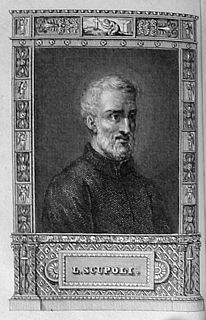A Quote by Paul Althaus
Earthly regeneration is a parable, but just alone a parable of the things to come.
Related Quotes
Jesus told parables. When he wanted to say something really profound about God, he went into parable. I don't find it surprising then that when earliest Christianity wanted to say something profound about Jesus, they went into parable too. That doesn't mean everything is a parable. When it says Jesus was in Nazareth I don't think that's a parable, I think Jesus was in Nazareth. When it talks about Jesus walking on the water, I don't think that's the point at all, I think the point is that the church without Jesus sinks.
It's the difference between a parable and a pamphlet. A parable discusses things that are relevant in the past, the future, and the present - regardless of the outcome in the present. A pamphlet, on the other hand, is completely concerned with affecting an outcome in the present, the most immediate present.
What I notice, as a historian reading stories about so-called nature miracles, the walking on the water, or the miraculous catch of fishes, they're done especially for the insiders, for the disciples. Usually healings and exorcisms are done for people along the road, as it were. Jesus doesn't come on the water to save the fishing fleet from Capernaum, he comes on the water to save the disciples. It's a parable, dummy, it's a parable, don't you get it? If the leadership of the church takes off in a boat without Jesus, it will sink, it will get nowhere.
Christ said "Thou shalt love thy neighbor as thyself" and when asked "who is thy neighbour? went on to the parable of the Good Samaritan. If you wish to understand this parable as it was understood by his hearers, you should substitute "Germans and Japanese" for Samaritan. I fear my modern day Christians would resent such a substitution, because it would compel them to realize how far they have departed from the teachings of the founder of their religion.
The parable of the prodigal son, the most beautiful fiction that ever was invented; our Saviour's speech to His disciples, with which He closed His earthly ministrations, full of the sublimest dignity and tenderest affection, surpass everything that I ever read; and like the spirit by which they were dictated, fly directly to the heart.
Humble patience, tirelessness and persistence in prayer conquer the unconquerable God and incline Him to mercy. According to the Lord's parable, the importunity of the widow inclined a wicked and unjust judge to grant her petition (cf. Lk. 18:1 ff.). The Lord gave this parable for a special purpose ? to teach us not to faint, but to pray patiently. If an unjust judge was persuaded to grant the petition of the widow, how can God fail to incline His ear to our prayers, if we persist in imploring Him since He is the essence of lovingkindness?
Divine things are too deep to be expressed by common words. The heavenly teachings are expressed in parable in order to be understood and preserved for ages to come. When the spiritually minded dive deeply into the ocean of their meaning they bring to the surface the pearls of their inner significance. There is no greater pleasure than to study God’s Word with a spiritual mind.


































